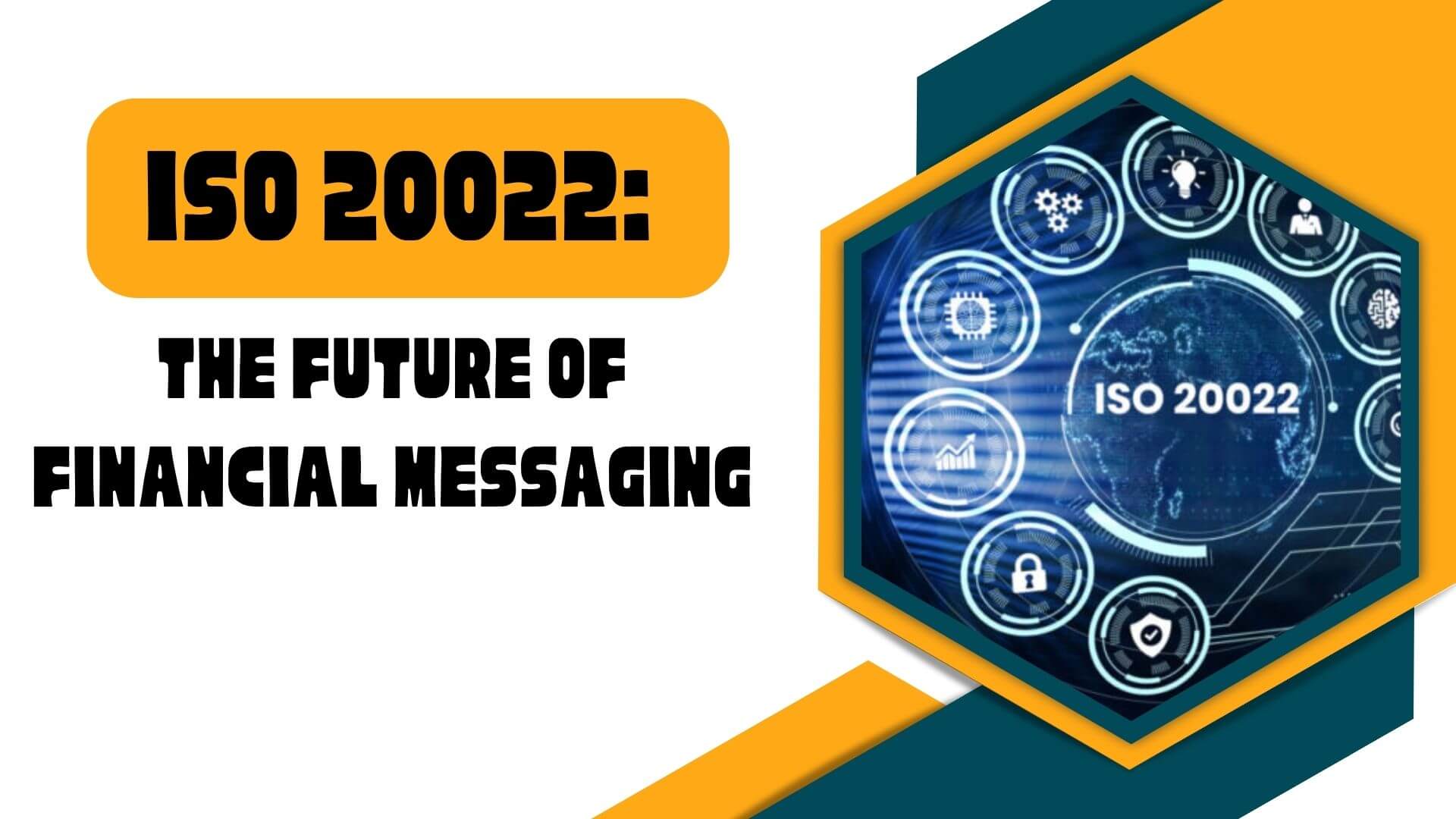In the ever-evolving landscape of financial transactions,
efficiency, reliability, and standardization are paramount. Enter ISO 20022, a
globally accepted standard for financial messaging that promises to revolutionize
the way financial institutions communicate. From its inception to its
widespread adoption and the benefits it brings, this article explores the
significance of ISO 20022 in shaping the future of financial transactions.
Introduction
to ISO 20022
ISO 20022 is a universal language for financial messaging,
developed by the International Organization for Standardization (ISO). Unlike
its predecessors, which were regionally specific and lacked interoperability,
ISO 20022 provides a common syntax and semantics for financial messages across
different platforms, systems, and geographies. It aims to streamline
communication, enhance interoperability, and improve the efficiency of
financial transactions globally.
Key
Features and Components
At its core, ISO 20022 is based on XML (eXtensible Markup
Language), a flexible and extensible format that allows for rich, structured
data. It offers several key features and components that set it apart:
1. Rich Data Model: ISO 20022 supports a rich data model,
enabling the inclusion of detailed information within financial messages. This
includes not only basic transaction details but also supplementary data such as
invoices, contracts, and regulatory information.
2. Standardized Message Types: The standard defines a wide
range of message types covering various financial processes, including
payments, securities, trade finance, and foreign exchange. These standardized
message types facilitate clear and unambiguous communication between financial
institutions and other stakeholders.
3. Business Process Modeling: ISO 20022 incorporates business
process modeling, allowing organizations to map their internal processes to the
standard. This alignment facilitates seamless integration and automation of
end-to-end financial workflows.
4. Compatibility and Extensibility: ISO 20022 is designed to
be compatible with existing messaging standards, making it easier for
organizations to transition from legacy systems. Moreover, it is extensible,
allowing for the incorporation of new message types and data elements to
accommodate evolving business requirements.
Benefits of
ISO 20022
The adoption of ISO 20022 offers numerous benefits to
financial institutions, corporates, and other participants in the financial
ecosystem:
1. Improved Data Quality: By providing a structured format
for financial messages, ISO 20022 enhances data quality and accuracy, reducing
the risk of errors and discrepancies in transactions.
2. Enhanced Straight-Through Processing (STP): The
standardization of message formats and the richness of data facilitate
automated processing, leading to faster transaction execution and settlement.
3. Interoperability: ISO 20022 promotes interoperability
between different systems and institutions, allowing for seamless communication
and collaboration across borders and industry sectors.
4. Regulatory Compliance: With its support for regulatory
reporting and compliance requirements, ISO 20022 helps organizations meet their
regulatory obligations more efficiently and effectively.
5. Innovation and Digital Transformation: ISO 20022 lays the
foundation for innovation and digital transformation in the financial industry.
Its flexible data model and extensibility enable the development of new
products, services, and business models.
6. Global Standardization: As a globally accepted standard,
ISO 20022 fosters consistency and harmonization in financial messaging
practices worldwide, reducing fragmentation and complexity.
Adoption
and Implementation
The adoption of ISO 20022 is gaining momentum across the
financial industry, driven by regulatory mandates, market demand, and the need
for modernization. Central banks, payment systems, and large financial
institutions are leading the way in implementing the standard for various use
cases, including high-value payments, cross-border transactions, and securities
settlement.
In Europe, the Eurosystem's Single Euro Payments Area (SEPA)
has mandated the use of ISO 20022 for all euro-denominated payments, further
accelerating its adoption in the region. Similarly, other regions and
jurisdictions are also embracing ISO 20022 to improve their payment
infrastructures and enhance cross-border connectivity.
While the transition to ISO 20022 involves upfront investment
and effort, the long-term benefits far outweigh the costs. Financial
institutions stand to gain operational efficiencies, cost savings, and
competitive advantages by embracing the standard and leveraging its
capabilities to transform their businesses.
Challenges
and Considerations
Despite its many advantages, the adoption of ISO 20022
presents challenges and considerations for organizations:
1. Legacy Systems: Many financial institutions rely on legacy
systems that may not natively support ISO 20022. Upgrading or replacing these
systems can be complex and resource-intensive.
2. Data Mapping and Transformation: Converting existing
message formats to ISO 20022 and mapping data elements accurately require
careful planning and execution to ensure compatibility and data integrity.
3. Industry Collaboration: Achieving widespread adoption of
ISO 20022 requires collaboration and coordination among stakeholders across the
financial ecosystem. Industry forums, working groups, and standards bodies play
a crucial role in driving consensus and facilitating implementation.
4. Regulatory Compliance: While ISO 20022 supports regulatory
compliance, organizations must ensure that their implementations align with
relevant regulatory requirements and reporting obligations.
5. Cybersecurity and Data Privacy: With the increased
digitization of financial transactions, cybersecurity and data privacy become
paramount concerns. Organizations must implement robust security measures to
protect sensitive information exchanged via ISO 20022 messages.
Looking Ahead
As the financial industry continues to evolve, ISO 20022 is
poised to play a central role in shaping the future of financial messaging. Its
adoption represents a significant milestone in the journey towards greater
standardization, interoperability, and efficiency in global financial
transactions.
By embracing ISO 20022 and harnessing its capabilities,
financial institutions can unlock new opportunities for innovation, streamline
their operations, and deliver enhanced value to their customers. As the
standard becomes more pervasive, its impact will extend beyond individual
organizations to transform the entire financial ecosystem, driving greater
efficiency, transparency, and resilience in the global economy.

